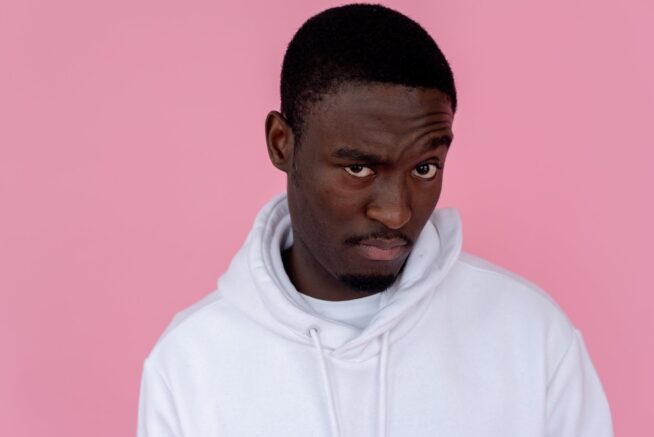For too long, I’ve viewed doubt as a weakness. As a decisive person, it never made sense to me why someone would wait in line to order food for twenty minutes or more and still not have a decision ready when it’s their turn. Especially when there’s a massive menu on the wall facing you while you wait. By “never made sense”, I mean it drove me berzerk. I used to feel like there was something wrong with a person who does this.
Why can’t people just make up their minds?
But those of us on the decisive side of the ledger have our issues too. We get in over our heads sometimes. We overcommit. We wish we would have thought things through more clearly. We fail to respect the consequences of our decisions. We oftentimes fly by the seat of our pants.
Overconfidence leads to disappointment. And indecision leaves unrealized potential. Neither of these paths sound very promising.
Maybe there’s a third way.
What if doubt actually illuminates the best path forward? Not doubt that ends in paralysis. But doubt that demands better answers. That kind of doubt may actually be necessary to grow and find meaningful solutions to vexing problems. Francis Bacon, an English philosopher credited with helping develop the scientific method, wrote almost 400 years ago that:
“If a man will begin with certainties, he shall end in doubts; but if he will be content to begin with doubts, he shall end in certainties.” ― Francis Bacon, The Oxford Francis Bacon IV: The Advancement of Learning
Think about what he is saying. If we are too sure of ourselves too quickly and fail to ask tough questions, we end up on shaky ground. The conclusion is weak. We see something that contradicts our idea and it all falls apart.
If on the other hand, we test and probe ideas with rigor, we arrive with greater confidence and elegance. Doubt can make us more insightful. Doubt can bring us positive energy. But how do we avoid the indecision that can come along for the ride?
I think the key is to be willing to doubt your doubt.
Ask questions. Be skeptical. Doubt. And then doubt the doubt.
This process does not need to end with indecision. The goal is to get a full range of possibilities on the table so that you can choose. By taking the time to consider the complete spectrum, we can raise the possibility of finding the best path.
Let’s look at how this principle can help to maximize our full potential in three of life’s most important areas.
New Relationships
We’ve all experienced the feeling before. Someone new comes into your life. You just ‘click’. Conversation is easy. There’s strong attraction. Things flow in the most natural of ways. The relationship feels like it’s meant to be. All of your feelings are signaling that this is something special. And maybe it is.
But we have to recognize that our feelings can lie to us. The reason is that our feelings come from our perceptions and beliefs. If our perceptions and beliefs aren’t correct, they can produce misguided feelings.
Doubt can test those perceptions and beliefs. Ask yourself why I feel so strongly about this person? It’s easy to gloss over the root beliefs you have while you are awash in pleasant feelings. But there are beliefs that underlie the feelings.
Find out what the beliefs and perceptions are and you can test them. What qualities am I assigning to this person? What do I believe about them that causes me to feel so strongly? The beliefs are unlikely to be 100% correct.
Getting to mostly correct means your feelings are on the right track. Mostly incorrect could indicate your feelings are leading you astray.
What I’m describing is a romantic connection but it really applies to all relationships.
I’ve felt high conviction positive feelings about business partnerships that turned out horribly. Had I taken the time to dig a bit deeper, I could have avoided pain and suffering for everyone involved.
We’re neither talking about burying feelings or putting them in charge of our decisions. We’re simply taking the time to understand where they are coming from so that we can evaluate the veracity of what they are telling us.
For this reason, I avoid anyone who demands faith or loyalty on a shortened timeline. That is a non-negotiable red flag. If I see this type of behavior, I run.
Evaluating human relationships is hard. Our hearts are complicated and deeply conflicted in many ways. Healthy doubt can help avoid the wrong relationships. And it can deepen the right ones.
Major Decisions That Involve Risk
Even a decisive person like me can feel frozen by truly consequential life decisions. Whether to proceed with a major business deal that involves debt. Whether to give up a secure job to start a new company. Whether to move to another country. These are big risks. Doubt is natural here.
It’s exciting to think about the possibilities of making the move. This could be my big breakthrough. And then the fear sets in.
Dig into it.
Get down to the root of that fear. All fear is really fear of failure in some sense. In this case, it’s important to get more specific. What specific consequences are at the bottom of the fear of failure? Is it reasonable? Sometimes it is, sometimes it isn’t.
I once had this conversation with a multimillionaire client who confided that he feared ending up homeless. Anything is possible but not everything is reasonable. Ending up homeless was an irrational fear for him. It held him back about a major change. And it was more rooted in beliefs instilled in at a very early age. By examining the specific fears more closely, he was able to doubt his doubts and move forward.
Testing the assumptions led to a more confident decision for him.
Faith and Belief
I’m transparent and open about my Christian beliefs. And I have a number of friends who are not believers. If our conversations turn to faith, I frequently get some variation of this comment :
I can’t believe in God because I have too much doubt.
I’m going to let all of my non-believing friends in on something. Most Christians also wrestle with doubt. Some of us struggle with it a lot. But we’re in good company because expressions of doubt are found throughout the Bible.
Perhaps the most famous doubter is the disciple Thomas who famously doubted Jesus’ resurrection. Thomas demanded more evidence before he would believe. Whether you believe in the supernatural or rather that this is a story, what’s remarkable is that Jesus gave him the exact evidence he sought. He didn’t refuse Thomas because he doubted. After seeing and touching Jesus’ wounds, Thomas said to him, “My Lord and my God!”(John 20:28).
The Bible contemplates doubt. And it’s often the doubt that leads to growth and fulfillment.
Another common comment I hear from non-believer friends is:
I just can’t bring myself to blindly believe that there’s a God when there’s no evidence it’s true.
It’s an interesting argument. But faith isn’t really opposed to reason if you think about it. We can’t prove the existence or non-existence of God. So either belief is faith by definition. If you believe there is no God, you are acting out of faith. Because you have no evidence that He doesn’t exist.
What faith does run in opposition to, though, is often our sight. What we see conflicts with what we hear or believe. We see suffering in the world and question the existence of God for example.
It’s understandable to have doubt about God’s existence or goodness based on what we see in the world.
But doubting the doubt can lead to a different conclusion. If God doesn’t exist, how could there be moral judgments on suffering or injustice?
“Survival of the fittest” would be the only valid governing principle. It couldn’t be judged as ‘evil’ since a code of morality would have no foundation. There couldn’t be right or wrong. Those value judgments have no place in a survival of the fittest framework. How could they?
The cause of the original doubt was the evil and suffering we see. But where could the judgment of goodness or badness come from without God or a supernatural power? It is hard to see how moral arguments can fit into pure natural selection.
Again, faith is not opposed to reason. And working through the doubt helps establish a stronger argument.
Handling Other People’s Doubt
As I’ve learned how healthy cynicism can lead to meaningful growth, it has changed the way I respond to doubt in other people. I don’t want to stifle someone else’s growth.
If someone close to me is expressing doubt, I resist the urge to convince them they’re wrong; especially if it’s about something I deeply care about. Ask questions. Learn about their perspective. And let them wrestle with it.
Maybe they’re expressing doubt about me. That’s okay. If I’m blessed enough to have someone believe in me, it will have more meaning if it’s been tested anyway.
Once I fully understand their point of view, then it’s appropriate to challenge their thinking. People are better prepared to have their thinking challenged when they have had the opportunity to be heard and work through the doubt on their own.
No matter what the result, I have helped my friend, family member, or loved one arrive at a stronger conclusion that they can own for themselves.
It’s very likely they couldn’t have gotten there without some healthy doubt.
 Brent Rupnow is a Certified Financial Planner, Certified Exit Planning Advisor, Christian, adventure lover, and aesthetic.
Brent Rupnow is a Certified Financial Planner, Certified Exit Planning Advisor, Christian, adventure lover, and aesthetic.
Image courtesy of SHVETS production.












